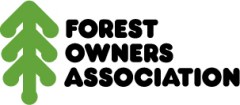PESTS AND DISEASES OF FORESTRY IN NEW ZEALAND
Agrocybe parasitica, native heart-rot fungus of hardwoods
Scion is the leading provider of forest-related knowledge in New Zealand
Formerly known as the Forest Research Institute, Scion has been a leader in research relating to forest health for over 50 years. The Rotorua-based Crown Research Institute continues to provide science that will protect all forests from damage caused by insect pests, pathogens and weeds. The information presented below arises from these research activities.
From Forest Health News No. 41, April 1995.
A number of collections of Agrocybe parasitica, a native fungus, have been collected from elms in Auckland. It occurs on a wide range of both native and introduced hardwood tree species but not on conifers. It is typically considered a heart rot fungus although lan Hood notes that it may invade sapwood as a weak parasite and can fruit on new wood at the margin of an open wound. It is well documented as being associated with the progressive loss of limbs and decline in health of Plagianthus betulinus and Hoheria spp. This decline may occur over a long period of time (up to 30 years), or it may occur reasonably quickly - a 10m Hoheria populnea on Arikikapakapa Golf Course, in Rotorua, had a third of its crown suddenly wilt last Christmas. The week before Easter mushrooms of A. parasitica appeared at the first fork in the trunk, approximately 3m above the ground, and more appeared at ground level in the last week of April. There is no conclusive evidence that A. parasitica caused the dieback, as there is a Nectria sp. that also causes branch dieback in these hosts, but it always appears to be associated with dieback. ( Geoff Ridley )

This information is intended for general interest only. It is not intended to be a substitute for specific specialist advice on any matter and should not be relied on for that purpose. Scion will not be liable for any direct, indirect, incidental, special, consequential or exemplary damages, loss of profits, or any other intangible losses that result from using the information provided on this site.
(Scion is the trading name of the New Zealand Forest Research Institute Limited.)

 Farm Forestry New Zealand
Farm Forestry New Zealand

